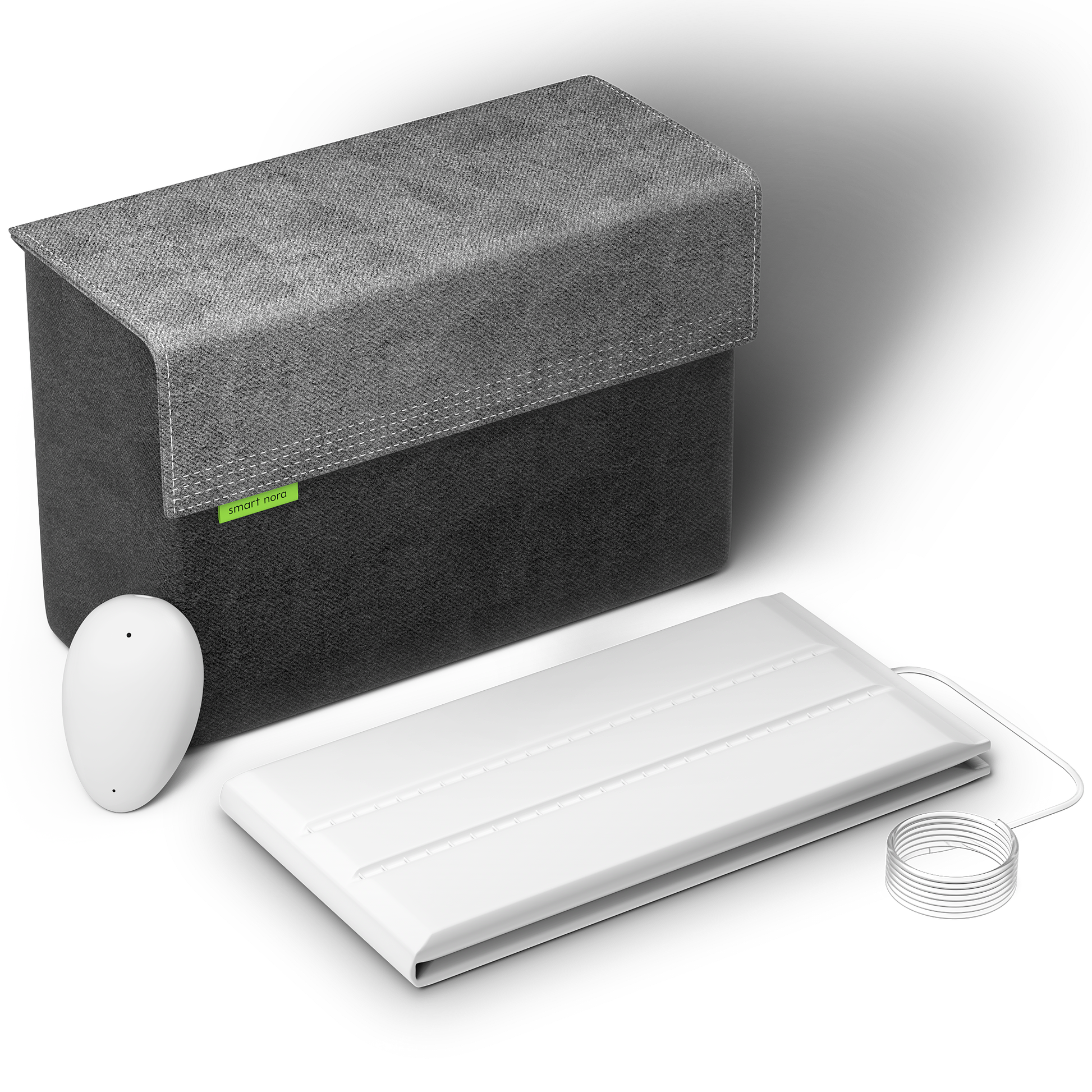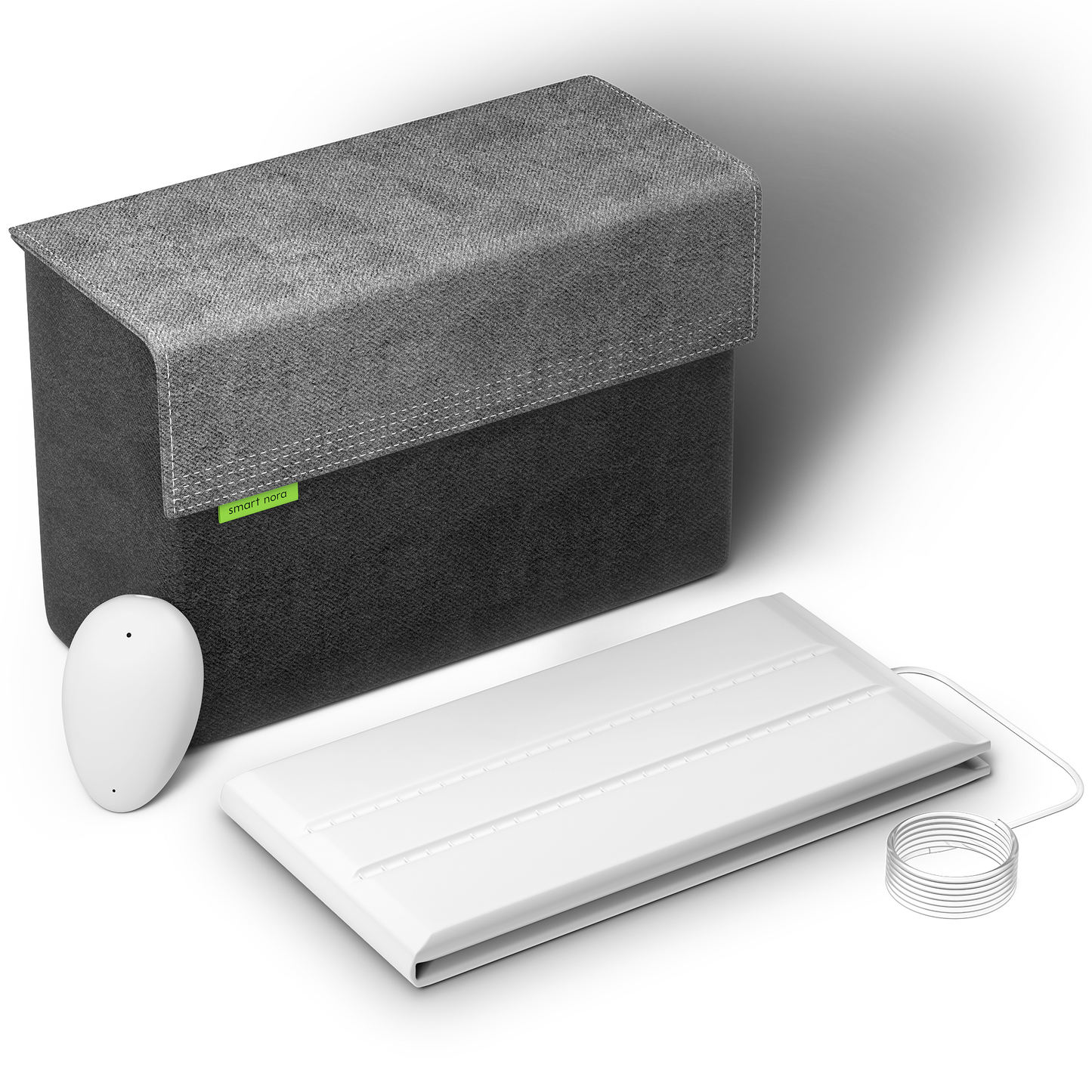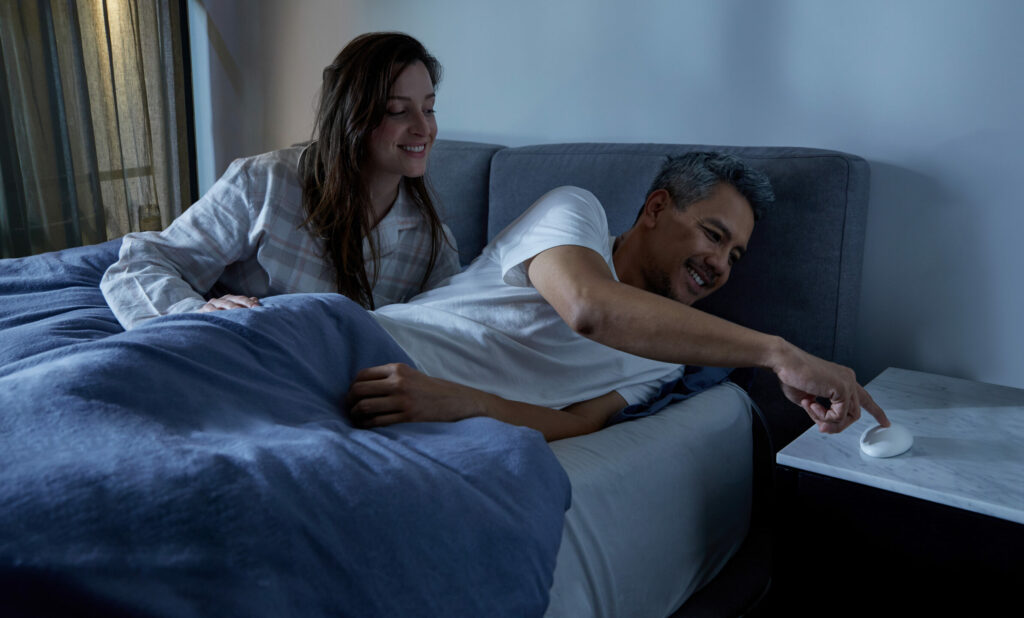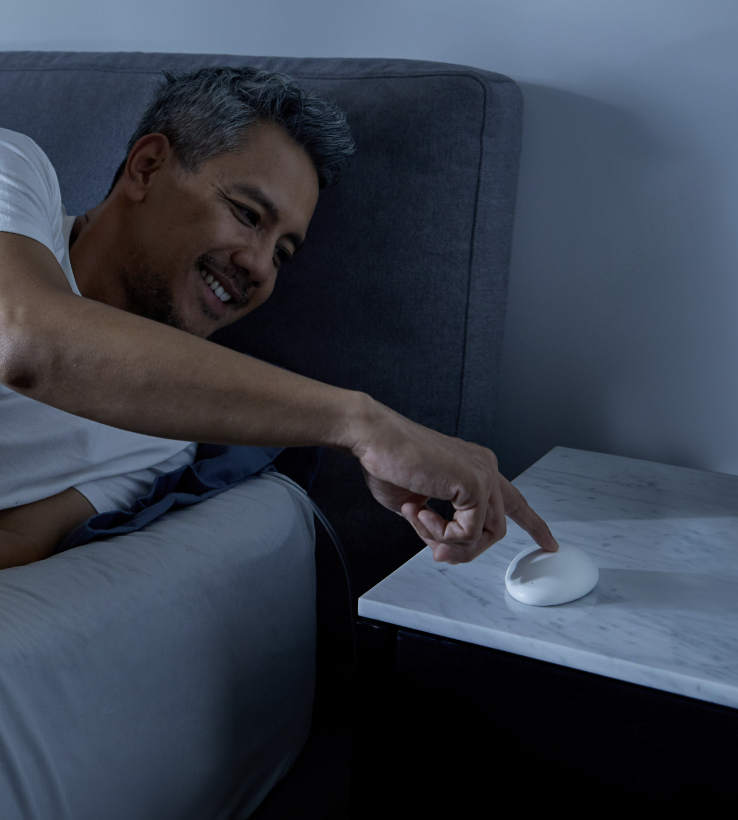
New parents have a long enough list of things to worry about already: the right diapers, sleepless nights, endless crying, milestone expectations, being the right kind of parent while juggling your own life… it’s endless! Well, instead of stressing about things that may or may not be in your hands, let’s focus on something that (in most cases) you shouldn’t have to worry about — baby snoring. Yup, that’s right! Snoring in a child is something that on the surface can sound unexpected, even worrisome, but it is likely not an issue at all, as baby snoring is usually just a part of early growth. Don’t worry, everything is going to be alright!
Newborn snoring is normal — new to the world, these fresh babies don’t have the tact or cultural understanding that snoring and snorting are not expected from the more sophisticated baby. Babies often breathe noisily, but especially so when sleeping. While newborn breathing often sounds like snoring — and might actually be snoring — these noises usually just indicate a normal benchmark for growth. Baby snoring is just the sound produced when soft tissues of your baby’s airway are vibrating and is usually nothing to worry yourself about.
Why Do Newborns Snore?
Newborns snore because they have underdeveloped nasal passages. The nasal passages of a newborn start out very tiny — the smallest bit of dryness or extra mucus in their noses can cause them to snore with their newborn stuffy nose. It’s just how babies sound sometimes, don’t fret! Rest assured that they’ll grow out of it as their nasal passages widen and muscles in their neck and throat develop. And when you get into the practice of tummy time, you’ll find that infant snoring drops as their neck muscles become stronger.
Newborn Stuffy Nose — Welcome to Snot City, Population YOU
Often, baby snoring is caused by a simple stuffy nose. In this case, nasal blockages can be cleared and remedied by using simple solutions like saline drops. This type of newborn snoring is something they’ll grow out of pretty quickly as their nasal passages develop— though if the snoring in child doesn’t subside or increases with the use of saline drops, you should simply record the sounds of your baby snoring and play them back for a pediatrician. You can do this with a simple tape recorder or — in the 21st century — with something you already have on hand: a smartphone. If you’re trying to capture your baby snoring, there’re some sleep apps that can help you!
Newborn Breathing Sounds Sure Are Strange
Baby snoring doesn’t often indicate a serious problem, but it does sound pretty unexpected for the first-time parent of a brand new snorer. Babies have a lot of mucus discharge and the snoring probably sounds less like a middle-aged person (that low, grumbly, rough type of snore) and more like a soft newborn. People often describe newborn snoring as
- Whistling
- Snuffling
- Snorting
- Bubbling
- Musical
These are all descriptors that relate to the sound air makes when it passes through, around, or over liquid (mucus) and it’s a fairly normal occurrence. When your baby has a cold or allergies, snoring increases — just like it does for you (or your partner). Newborn breathing sounds sure can be strange.
4 Newborn Snoring Solutions
There are a handful of things you can do to help alleviate baby snoring — whether it’s an issue or not, snoring might be uncomfortable for a baby (or you). Try these, but always check with your pediatrician first:
- Nasal Spray — With pediatrician approval, nasal sprays are a way to open up your snoring baby’s nasal passages and help them breathe easy. There are over-the-counter infant-approved nasal sprays in most pharmacies (suggested over making your own due to possible contaminants in water) that just require two to three drops of the saline solution once a day into your baby’s nose. They might not like it at first, but they’ll thank you for the better sleep (by letting you get some much-needed sleep yourself!). Give ‘em the gift of easy newborn breathing!
- Nasal Aspirator — A nasal aspirator is essentially the opposite of nasal spray. Instead of putting something in to loosen up the excess mucus, you can use a nasal aspirator to simply suction it out! These booger busters may seem gross at first but, hey, lots of baby stuff is pretty gross, right? At least with an aspirator, you’ll clear up that newborn breathing. Let in the fresh air!
- Humidify Baby’s Room — If you have central heating, you likely have dry air in your home. When your baby’s nose is clogged, a warm mist vaporizer or humidifier can help humidify the air and cut down on baby snoring. In a similar way, loosening nasal secretions can be achieved with a warm bath or shower, which may help your baby sleep more comfortably. Say goodbye to the newborn stuffy nose!
- Baby Sleeping Position — Sleeping posture may trigger infant snoring. Just like adults, sleeping posture may trigger infant snoring. When a baby sleeps on their stomach or back they are more likely to snore compared to side-sleeping. That said, studies encourage you to not let your baby sleep on their side, as it can be dangerous! When a baby is old enough to sleep on their side naturally, they’ll snore less, but when they’re very young, it is advised to have them sleep on their back — even if it causes them to snore a little bit more. If your baby is snoring because they're on their back, you might just have to wait it out!
When Baby Snoring is More Serious
Conditions such as Nose or airway abnormality, enlarged tonsils or adenoids, floppy upper airways or underdeveloped cartilage can be a sign of a more serious issue. In these cases, newborn breathing through the trachea and larynx can cause a wheezy sort of breathing or a noise called “stridor” which is a harsh, high-pitched whistling or gasping. Excessive snoring can be indicative of disordered sleep that may predict long-term problems for children.
In a study by Karen Bonuck at the Albert Einstein College of Medicine, it was noted that baby snoring and infant snoring may lead to developmental disruptions in the prefrontal cortex — leading to hyperactivity, emotional problems such as anxiety & depression, and conduct disorders. “Sleep is a time to restore the brain’s cellular and chemical homeostasis,” Bonuck noted. “When sleep is disordered, the brain receives less oxygen than it needs, and may get more carbon dioxide than it needs.”
All that is to say — if newborn snoring persists, talk to a pediatrician or sleep consultant and they can suggest the best course of action.
Do Newborns Snore? Yes, and for the most part that is ok.
If you’re stressed about baby snoring, be assured that it’s fairly normal and expected. From their tiny nasal passages to excess mucus bubbling up, it’s likely that your baby just needs to grow out of it. While infant snoring certainly can lead to higher risks (particularly with abnormalities in the nasal passages) that’s something an experienced pediatrician can catch -- just let them know that you need reassurance. In the meantime, a little snoring isn’t a bad sign. Use a nasal aspirator or humidifier to help reduce the pressure of buildup… or give it a couple of nights, and your baby might stop snoring on their own before you know it!












